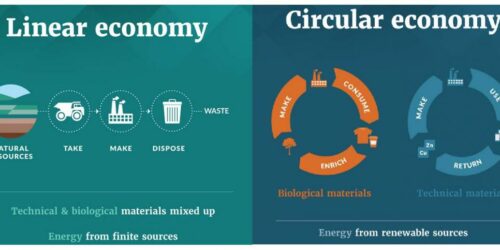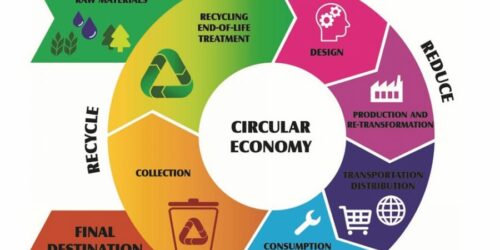Corporate Social Responsibility – Capitalism, Occupy Wall Street

Corporate Social Responsibility – Capitalism, Occupy Wall Street
1. “The Occupy Wall Street campaign (http://occupywallst.org/) was a success.” Do you agree or disagree? Why or why not?
In the case, it’s claimed that the Occupy Wall Street campaign was a failure. We think it was a step towards success. Rome wasn’t built in one day, women didn’t become entitled to vote after one protest, or LGBTQ rights weren’t recognised after one march. All of these and others took countless attempts, movements, protests, riots, sweats and tears before they are recognised, become normalised, and qualified for success.
Occupy is considered as a failure by some because it didn’t achieve its political goals (Taube, 2013). Protesters wanted higher taxes for the rich, prosecution of political corruption and financial fraud, student loan forgiveness, universal healthcare, more jobs in the market, and so on (Carney, 2011). The movement didn’t end up accomplishing these, mainly because it was a decentralised and leaderless movement. What made it stand out though, wasn’t its novel political manifesto, but the way it was organized in our opinion. When it was started in 2011, it was a new way of democratic protests. It proved that protesters and activists can organise themselves in horizontal and democratic ways.
Therefore, we believe that it’s not fair to call the Occupy unsuccessful by focusing on its failed attempt of novel political changes. We think it made its point by shedding light on greed and the undue influence of big corporations (especially financial companies) on government and educating society about that. After the Occupy, people were more aware, and felt more confident about standing up to corruption and economic inequality.
2. After reading this case, what do you think were the main causes of the Financial Crisis? Has anything changed today?
Greed? Mismanagement? Abdication of responsibility? Lack of common sense? We believe these all were the reasons led to the Great Recession.
It clearly shows that how something so irrational and irresponsible can be repeated by millions and become so common in society by herd psychology when it benefits some greedy hoarders to stock up commissions. Anyone with common sense and perspective would be able to expect that a crisis was coming, but no one has spoken up or stopped what they’re doing.
Has anything changed today? We don’t think so. Yes, financial organizations and management in such became aware of why they shouldn’t do what they did in 2007 – 2009, so we won’t have a crisis resulting from foolishly selling subprime mortgage facilities and ninja loans to people who have no chance to pay it back maybe. However, we believe when there’s another ‘’opportunity’’ occurs where a part of society can make quick bucks in a relatively short amount of time by acting recklessly against the greater society’s interest, it’s highly likely they will go for it.
We do not want to sound pessimistic but considering we are in a capitalist world and most people usually have a hard time to self-control their greed, crises will always happen in one way or another, in our opinion.
3. How can a firm motivate salespeople who work on commission (as many mortgage brokers did in the run-up to the Financial Crisis) to sell products that are in their customers’ interests rather than their own?
Motivating salespeople on commission-based compensation could be challenging, especially when they are required to put customer’s interests before their own interest which can potentially impact their income. Nevertheless, there are certain things a firm can do to keep both its salespeople and customers happy.
First and foremost, A firm’s commission policies must align with its missions, culture, and business objectives. To begin with, the firm should practice screening candidates at job interviews and provide appropriate training for good business ethics because even the best salesperson would not be an asset to a business without a strong work ethic. It is also important to keep watching out for unethical behaviors within the current team to maintain a positive selling culture.
Second, the commission structure should be fair with realistic targets. When the firm fails to do this, it not only will not generate the expected outcomes but also drive bad sales behavior and negatively affect the customers. Either too high or too low targets would demotivate salespeople. Also, the firm could consider having no commission caps. The reason is that when a salesperson reaches their monthly quotas, it is foreseeable that they would be less productive until the next month. In case a certain level of commission cap is required, the firm can consider high tiered commission model with extra bonuses for exceeding quota to maintain ongoing productivity (Forbes (Ed.), 2018).
Lastly, although cash is king in the sales profession, the commission should not be the only performance driver for your salespeople. For example, a firm can also motivate salespeople with non-monetary rewards such as vacation time, gift cards, and career development. Although motivating salespeople beyond monetary incentives is not easy, it could be perceived as the act of recognition in the eyes of the sales team.
4. Consider how many credit cards you carry, and how many loans you’ve taken out. Do you think that reform of the credit-fuelled economic model in the West is essential for a more equitable global economy?
We believe it is essential to reform the current credit-fuelled economic model. In our knowledge and understanding, there are a few aspects where the current credit-fuelled economic model is not always effective and beneficial. Especially when it could cause rising income and wealth inequality which was one of the main reasons for the financial crisis of 2007- 2008.
To begin with, although the credit-fuelled economic model has its benefits when it comes to spending using credits and obtaining loans are undeniable, we are of the opinion that the credit system could be a high-interest debt trap for over-spending and unsustainable debts to some extent. For example, credit cards impose no immediate fine for over-spending. For that reason, it is easy for spenders to go overboard for something they cannot afford. The problem is that even if someone has a good and improving credit score – meaning high credit limit, it does not mean that their income is growing accordingly which means that they could be trapped in bad debt ( Schreiber, 2018).
Another point is that life in the West, especially in countries like the United State and Canada, relies heavily on the credit system. It has been extremely influential that everywhere we go, we are asked for credit scores. From common applications such as personal loans, credit cards, and house mortgage to a rental apartment or job applications, most of them require a credit check. This widens the wealth gap between the wealthy with high credit scores and the poor with lower ones.
References
Carney, J. (2011). What Does Occupy Wall Street Want? CNBC. Retrieved October 11, 2020, from https://www.cnbc.com/id/44819849
Chandler, D. (2020). Strategic corporate social responsibility: Sustainable value creation (5th ed.). Thousand Oaks, CA: SAGE.
Forbes Business Development Council (Ed.). (2018). Nine Commission Structures That Will Keep Your Sales Team Motivated. Forbes. Retrieved October 11, 2020, from https://www.forbes.com/sites/forbesbusinessdevelopmentcouncil/2018/08/01/nine-commission-structures-that-will-keep-your-sales-team-motivated/#31207d994cd8
Schreiber, M. (2018). t’s no coincidence credit card debt and income inequality are at new highs. CNBC News. Retrieved October 11, 2020, from https://www.nbcnews.com/think/opinion/it-s-no-coincidence-credit-card-debt-income-inequality-are-ncna836281
Taube, A. (2013). Maybe Occupy Wall Street Wasn’t Such A Failure After All. Business Insider. Retrieved October 11, 2020, from https://www.businessinsider.com/reconsidering-the-failure-of-occupy-wall-street-2013-9





